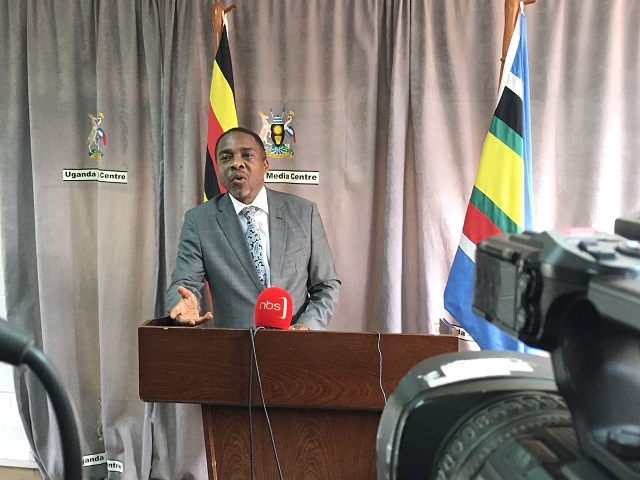
Kampala, Uganda | THE INDEPENDENT | The Attorney General, William Byaruhanga says critics have largely misrepresented the provisions of the five electoral reform bills. They include the Presidential Elections Amendment, Parliamentary Elections Amendment, Local Governments Amendment, Electoral Commission Amendment and Political Parties and Organizations Amendment Bills. Byaruhanga presented the five electoral reforms bills before parliament on Thursday last week for the first reading.
The Bills seek to among other things reform electoral laws relating to the qualification of candidates, financing of elections and the manner in which elections will be held for the presidency, parliament, local governments and the role of political parties and the Electoral Commission for the smooth running of elections.
They also aim at conforming to the ten recommendations of the Supreme Court in the 2016 presidential election petition and the Constitutional Amendment Act, 2018 which lifted the age limit cap for presidential and local government candidates, extended the time for filing election petitions, hearing of petitions and the period for holding presidential by-elections when an election is nullified.
However, Byaruhanga notes that some critics have misrepresented the contents of the Bills both in mainstream and social media platforms. He explains that the misrepresentation was largely because the critics could have failed to access, read, and comprehend the contents of the Bill or deliberate attempt to misrepresent proposed electoral reforms.
Some of the concocted provisions according to Byaruhanga include early voting by soldiers and security personnel, prohibition of independent candidates from forming alliances with political parties and Organizations, prohibition of cameras and phones at polling stations and presenting results to only five voters at polling stations.
Uganda Radio Network-URN asked Byaruhanga whether the failure by Justice and Constitutional Affairs Ministry to deliver hard copies of the Bills to Parliament could have contributed to the limited access and misrepresentation of their contents.
Byaruhanga noted that he presented only one hard copy of each of the five bills to parliament because he had to beat the July 25th deadline set by the Supreme Court in the judgment of a petition filed by Frederick Ssempebwa, Fredrick Jjuko and Kituo Cha Katiba, a civil society organization and Katiba.
The petitioners wanted court to fault the Attorney General for non-compliance with the court’s orders relating to electoral reforms. The Supreme Court directed that the Attorney General should table electoral reforms to parliament by July 25th of this year.
In 2016, the Supreme Court directed the Attorney General to table electoral reforms two years before the next election in their judgment on the Amama Mbabazi Presidential election petition. Byaruhanga says that while the ministry failed to deliver copies of the Bill, there was no justification for the critics to concoct their own provisions.
The Deputy Attorney General, Mwesigwa Rukutana claimed that MPs received soft copies of the Bills last week. However, URN found out that by Midday on Monday, soft copies of the Bills had not been uploaded on parliament’s thereby restricting access by the legislators.
Even the hard copies had not been made available at the office of the Clerk. Reliable sources told URN that there was directive from the Clerk, Jane Kibirige that soft copies of the Bills should be uploaded only after the Justice Ministry has delivered 2,500 hard copies of the five Bills.
That is to say, 500 copies per Bill so that each MP gets a hard copy. Rukutana says that MPs and Parliament should also consider the move towards going paperless.
*****
URN
 The Independent Uganda: You get the Truth we Pay the Price
The Independent Uganda: You get the Truth we Pay the Price





